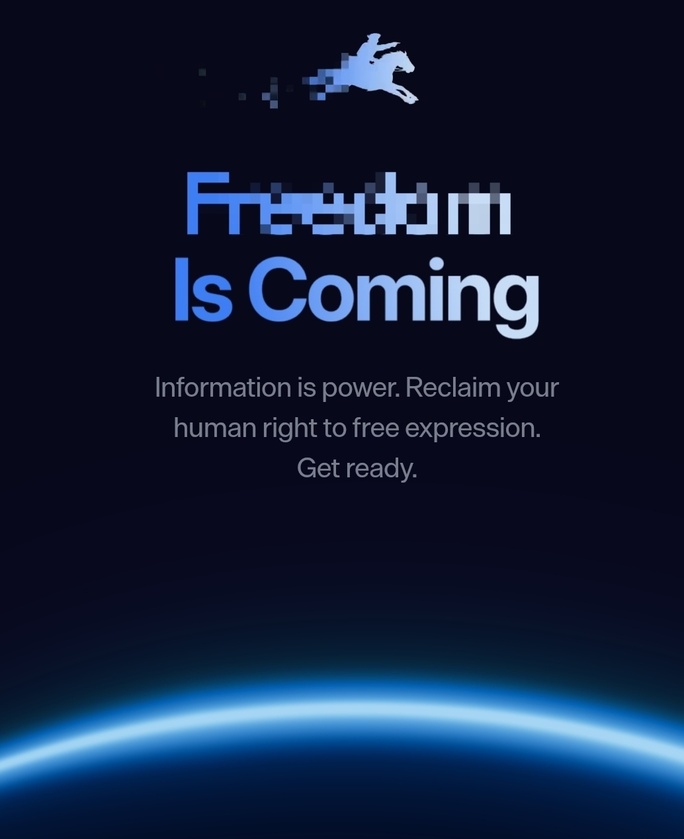I recently came across an exciting technological solution called Hyperledger Besu that has the potential to revolutionize the healthcare industry. With its focus on improving data management and security, Hyperledger Besu offers a promising solution to the numerous challenges faced by healthcare organizations.
This article will explore the key features and benefits of using Hyperledger Besu in healthcare, highlighting its potential to enhance data privacy, streamline operations, and ultimately improve patient care. So let’s dive into the world of Hyperledger Besu and discover how it can transform the healthcare landscape.
Benefits of Hyperledger Besu in Healthcare
Increased data security
In the healthcare industry, data security is of utmost importance. Hyperledger Besu provides enhanced security measures to protect sensitive patient information and other healthcare data. As a permissioned blockchain platform, Hyperledger Besu ensures that only authorized parties can access and modify data. Through its robust encryption and cryptographic techniques, it offers protection against unauthorized tampering and ensures the integrity of the data.
Improved data management
Data management is a crucial aspect of healthcare, as it involves the storage, retrieval, and sharing of patient records and other healthcare-related information. Hyperledger Besu offers a comprehensive solution for efficient data management. With its distributed ledger technology, it enables secure and streamlined storage and retrieval of data. This eliminates the need for multiple data copies and reduces the chances of data inconsistency. Furthermore, Hyperledger Besu allows seamless data sharing among authorized participants, facilitating collaborative efforts and improving overall data management in healthcare.
Enhanced interoperability
Interoperability is vital in the healthcare industry, as it involves the seamless exchange of data between different systems and organizations. Hyperledger Besu plays a significant role in promoting interoperability by providing standardization and data exchange protocols. It ensures that data can be shared and understood across different platforms, enabling efficient collaboration and integration of healthcare systems. With Hyperledger Besu, the barriers to achieving interoperability in healthcare can be significantly reduced, leading to improved patient care and outcomes.
Understanding Hyperledger Besu
Overview of Hyperledger Besu
Hyperledger Besu is an enterprise-grade, open-source blockchain platform developed by the Linux Foundation. It is built on the Ethereum public blockchain and is designed specifically for enterprise use cases. Hyperledger Besu supports both public and private networks, providing flexibility and scalability for various industries, including healthcare. It enables organizations to build and deploy blockchain-based applications, facilitating efficient data management and secure transactions.
Key features of Hyperledger Besu
Hyperledger Besu offers several key features that make it suitable for healthcare applications. One of its notable features is its permissioned blockchain architecture, which ensures that only authorized participants can join and interact with the network. This enhances data security and privacy in healthcare settings. Hyperledger Besu also supports smart contracts, enabling the execution of self-executing business logic in a transparent and secure manner. Additionally, it provides a consensus mechanism and scalability options to accommodate the demands of the healthcare industry.
Data Security in Healthcare
Importance of data security in healthcare
Data security is critical in the healthcare industry due to the sensitive nature of patient information. As healthcare organizations increasingly adopt digital systems for storing and managing data, the risk of unauthorized access or data breaches also increases. Protecting patient privacy and ensuring the confidentiality, integrity, and availability of healthcare data are paramount to maintaining trust and avoiding legal and reputational consequences.
Challenges of data security in healthcare
Healthcare data faces various challenges in terms of security. The sheer volume of data generated, coupled with the interconnectedness of healthcare systems, makes it challenging to implement comprehensive security measures. Furthermore, healthcare data often needs to be shared across multiple entities, including healthcare providers, insurers, and researchers, which introduces additional vulnerabilities. The use of legacy systems and lack of standardized security protocols also pose significant challenges to maintaining data security in healthcare.
Potential risks and breaches
Data breaches in the healthcare industry can have severe consequences, both for individuals and organizations. Personal health information can be exploited for identity theft, fraud, or other malicious purposes. Moreover, breaches can lead to the compromise of patient confidentiality and trust, resulting in reputational damage for healthcare providers. Additionally, regulatory penalties and legal liabilities can arise from non-compliance with healthcare data security regulations. Therefore, it is imperative to implement robust measures to mitigate potential risks and breaches.
Hyperledger Besu for Data Security
Role of Hyperledger Besu in ensuring data security
Hyperledger Besu offers several features and functionalities that contribute to data security in healthcare. By implementing a permissioned blockchain network, only authorized participants are granted access to the network and can verify and validate transactions. This ensures that sensitive healthcare data remains within a trusted network and prevents unauthorized access. The immutability of the blockchain technology further enhances data security by making tampering with data virtually impossible.
Encryption and cryptographic techniques used in Hyperledger Besu
Hyperledger Besu leverages encryption and cryptographic techniques to safeguard the confidentiality and integrity of healthcare data. It utilizes public-key cryptography to establish secure communication channels and authenticate network participants. Additionally, data stored on the blockchain is encrypted to protect it from unauthorized access. The use of such advanced encryption and cryptographic techniques ensures that healthcare data remains secure throughout its lifecycle.
Data Management in Healthcare
Data storage and retrieval challenges in healthcare
The healthcare industry faces significant challenges when it comes to data storage and retrieval. The sheer volume of patient records and medical data generated daily requires efficient storage solutions that can handle large datasets. Traditional data management systems often struggle to meet these demands, leading to delays and inefficiencies. Moreover, retrieving relevant patient data quickly and accurately poses a considerable challenge, particularly in emergency situations where timely access to information can be critical.
Benefits of using Hyperledger Besu for data management
Hyperledger Besu addresses the data management challenges in healthcare by providing a distributed ledger system. This distributed ledger allows for the storage and retrieval of large volumes of healthcare data in a secure and efficient manner. Unlike traditional databases, the decentralized nature of Hyperledger Besu eliminates the need for a central authority, reducing the risk of data manipulation and corruption. This ensures that healthcare data can be easily accessed and shared, leading to improved efficiency and better patient outcomes.
Improved Data Management with Hyperledger Besu
Data privacy and ownership
Hyperledger Besu enables improved data privacy and ownership in healthcare. With its permissioned network, healthcare organizations can maintain control over their data and decide who has access and authority to modify it. This empowers patients to have more control over their own health information, allowing them to grant or revoke access to their data as required. By placing data ownership in the hands of patients and healthcare providers, Hyperledger Besu promotes trust and transparency in healthcare data management.
Efficient data sharing and consent management
Hyperledger Besu simplifies the process of data sharing in healthcare by providing a secure and transparent platform for consent management. Through smart contracts, patients can grant specific permissions to different entities, ensuring that data is shared only with authorized parties. The use of blockchain technology also enables real-time auditability of data access and sharing, enhancing transparency and accountability. The seamless data sharing facilitated by Hyperledger Besu improves care coordination and enables more comprehensive healthcare delivery.
Data lifecycle management
The lifecycle management of healthcare data is streamlined with Hyperledger Besu. The blockchain platform enables a clear record of all transactions and modifications made to the data, ensuring a transparent and auditable data trail. Data provenance and audit logs provided by Hyperledger Besu help in maintaining data integrity and traceability. This is particularly important for compliance with data retention and deletion policies, regulatory requirements, and clinical research purposes. By simplifying data lifecycle management, Hyperledger Besu ensures data is stored, accessed, and deleted in a compliant and responsible manner.
Interoperability in Healthcare
Importance of interoperability in healthcare
Interoperability refers to the ability of different healthcare systems and applications to exchange and interpret data seamlessly. Interoperability plays a vital role in improving patient care by ensuring that healthcare information can flow freely between systems, regardless of the technology or vendor used. It enables efficient care coordination, reduces duplication of effort, and enhances clinical decision-making. Achieving interoperability is crucial for creating a connected healthcare ecosystem that delivers comprehensive and personalized patient care.
Challenges of achieving interoperability in healthcare
Achieving interoperability in healthcare is a complex task due to several challenges. Healthcare organizations typically use disparate systems and technologies, often developed by different vendors, making it challenging to establish interoperable connections. Additionally, varying data standards and formats hinder the seamless exchange of data. Different privacy and security regulations across jurisdictions further complicate interoperability efforts. Overcoming these challenges requires a concerted effort from healthcare stakeholders and the adoption of interoperable solutions like Hyperledger Besu.
Enhanced Interoperability with Hyperledger Besu
Standardization and data exchange protocols
Hyperledger Besu promotes enhanced interoperability through the adoption of standardized protocols and formats for data exchange. By adhering to established standards, healthcare systems can communicate and interpret data seamlessly, regardless of the underlying technology. Hyperledger Besu supports widely recognized healthcare data standards like HL7 (Health Level Seven) and FHIR (Fast Healthcare Interoperability Resources). This ensures that healthcare organizations can achieve meaningful data exchange and integration, enabling comprehensive patient care across different systems.
Smart contracts for seamless data exchange
The Smart contracts provided by Hyperledger Besu play a significant role in achieving seamless data exchange. Smart contracts are self-executing agreements that automatically enforce predefined rules and conditions. In the context of healthcare, smart contracts can facilitate the exchange of patient data while ensuring privacy and security. By enabling trustless transactions and automating data exchange processes, smart contracts remove the need for intermediaries and reduce the complexity and cost associated with achieving interoperability in healthcare.
Regulatory Compliance and Hyperledger Besu
Ensuring compliance with healthcare regulations
Compliance with healthcare regulations is a primary concern for healthcare organizations. Hyperledger Besu helps address regulatory compliance challenges by offering traceability, immutability, and data transparency. The blockchain’s immutable nature ensures that once data is recorded, it cannot be altered retroactively, providing an auditable trail of all transactions. This enables healthcare organizations to demonstrate compliance with data protection regulations, such as the Health Insurance Portability and Accountability Act (HIPAA) in the United States or the General Data Protection Regulation (GDPR) in the European Union.
Auditability and transparency with Hyperledger Besu
Hyperledger Besu provides auditability and transparency, two essential aspects of regulatory compliance. All transactions recorded on the blockchain are visible to authorized participants, allowing for real-time monitoring and auditing. This enhances the ability to detect and prevent unauthorized access or modification of healthcare data, ensuring compliance with industry regulations. By leveraging the transparency and auditability features of Hyperledger Besu, healthcare organizations can meet regulatory requirements and maintain the highest standards of data security and privacy.
Case Studies: Hyperledger Besu in Healthcare
Real-world examples of Hyperledger Besu implementation in healthcare
- Patient-centric health records: Hyperledger Besu has been used to develop patient-centric health record systems that empower patients to control their health data and share it securely with healthcare providers.
- Supply chain management: Hyperledger Besu has been implemented in healthcare supply chain management to ensure the authenticity and traceability of pharmaceutical products. By using a blockchain-based system, counterfeit drugs can be identified and removed from the supply chain, ensuring patient safety.
- Clinical trials and research: Hyperledger Besu has been leveraged to streamline the management of clinical trial data. By securely storing trial data on the blockchain, researchers can ensure data integrity and transparency in the research process, facilitating collaboration and knowledge sharing.
Benefits and outcomes
The implementation of Hyperledger Besu in healthcare has led to numerous benefits and positive outcomes. These include enhanced data security and privacy, improved interoperability, streamlined data management workflows, and increased patient control over health information. The use of Hyperledger Besu has also facilitated regulatory compliance and auditability, reducing the risk of data breaches and non-compliance with healthcare regulations. By harnessing the power of blockchain technology, Hyperledger Besu has the potential to revolutionize data management and security in the healthcare industry, ultimately leading to better patient care and outcomes.
In conclusion, Hyperledger Besu offers significant advantages for healthcare organizations seeking to improve data management and security. By addressing the challenges of data security, data management, and interoperability, Hyperledger Besu enables healthcare providers to enhance patient care, streamline workflows, ensure regulatory compliance, and foster trust in the healthcare ecosystem. With its robust features and capabilities, Hyperledger Besu is poised to revolutionize the way healthcare data is managed and secured, ultimately benefiting both patients and healthcare organizations.
The Dinarian On Locals is a labor of love that I pour my heart and soul into during my personal time. Countless hours are dedicated to delivering you the most up-to-date, unfiltered, and authentic news and information. Your support means the world to me, and I invite you to consider making a donation or becoming a dedicated supporter of this project. Any amount of XRP donations can be sent by scanning the QR code below and are not only appreciated but needed... No amount is too little and every one helps. Those that know me personally know that I would not be asking this if I had any other option. To those already backing my efforts, I extend my deepest gratitude. Your generosity fuels this mission and keeps a roof over my families heads, and I genuinely thank you from the depths of my heart. Together, we can continue to bring you the best results and make a positive impact in everyones future moving forward! ~ Namaste🙏🏼The Dinarian













 All while Pfizer—a company with a $2.3 billion criminal fine for fraudulent marketing, bribery, and kickbacks—was given blanket immunity from liability and billions in taxpayer dollars to produce a vaccine in record time with no long-term safety data.
All while Pfizer—a company with a $2.3 billion criminal fine for fraudulent marketing, bribery, and kickbacks—was given blanket immunity from liability and billions in taxpayer dollars to produce a vaccine in record time with no long-term safety data.
























